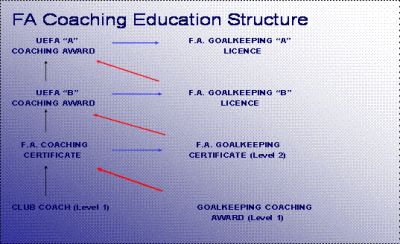I had more response to the column on the state of English goalkeeping than I get to most of my syndicated columns. I wasn't exactly over-run, but I did realise I am not the only person concerned about the issue. One respondent needs little introduction to Carlisle fans. Tony Elliott has played and coached at Carlisle during a lengthy and colourful career. I wasn't going to let the chance of engaging with one of the most knowledgeable people in the goalkeeping game pass me by, so the current column is given over to a brief interview.
Since leaving my post as full time goalkeeper coach at CUFC I have been very active locally in terms of coaching goalkeepers. I have been running my goalkeeping school, the No.1 Keeper Club in three different venues around Cumbria, namely Carlisle, Brampton and Maryport and we have had around half a dozen of the keepers that have come through that system actually go on to sign for CUFC as well as other pro clubs! I have also been a member of the coaching/scouting staff at the Liverpool FC Academy for the past four years and I also now head some of their community soccer camps in venues across Europe every summer. I am also the Cumberland FA's Goalkeeping Development coach as well as the tutor for their FA Goalkeeping Level 1 Award (I also perform this role for other County FA's across the North of England including the Isle of Man and Lancashire FA's as a qualified FA tutor/assessor.) I am also very proud to be the England Futsal Team's Specialist Goalkeeper Coach and have been for the past eighteen months and have travelled to places such as Hungary (Futsal World Cup Qualifiers), France for a four team tournament against France, Holland and Montenegro and recently to Dublin for the Futsal European Championship Qualifiers to compete with Ireland, Cyprus and Kazakhstan.
We are never used anywhere near enough! The qualification pathway for goalkeeper coaches is a lot tougher than outfield coaches. A goalkeeper coach must first have a qualification as an outfield coach before they can step to the equivalent goalkeeping qualification (see diagram below). The other difficulty for qualified keeper coaches who work daily at pro clubs is that they are basically there to warm up the keepers, keep them ticking over and at best assess the goalkeepers under their wing during game play. Very rarely will the manager/head coach ask the goalkeeper coach to get involved or take a session using the outfield players with the exception being the odd session with the goalkeeper and the back four/five or shooting drills. Therefore, what is the point of the goalkeeper coach going through all the expense and time of gaining these outfield qualification's when they are very rarely going to need the knowledge gained when going on the top level courses! 3. If the FA asked you down for half an hour to advise them on improving goalkeeper coaching in the UK, what would you tell them? First and foremost I would have to say that we need better coaches. I have seen a lot of inadequacies in a lot of coaches who think that coaching is about setting up a drill and away you go. There has to be a purpose behind every exercise or drill and as much as you can, try to keep the individual situation as game related as possible so that the keeper can transfer any given situation from training to game very easily. A lot of coaches, even top level, set up an exercise without looking to develop the keeper during a session and again it's just a tick over situation until the keeper is needed to work with the rest of the team. One of the coach's greatest tools is the power of observation. In order to minimise the goalkeeper's weaknesses, the coach should be able to diagnose key faults in the keeper's performance. These defects may be related to technical deficiencies, incorrect decisions, negative starting positions, poor physical fitness or lack of confidence. Secondly, we now have a lot of foreign coaches working with keepers at the first team level in the Premier League (the England goalkeeper coach is also foreign), whereas most of the goalkeeper coaches working in our academies are English. |
